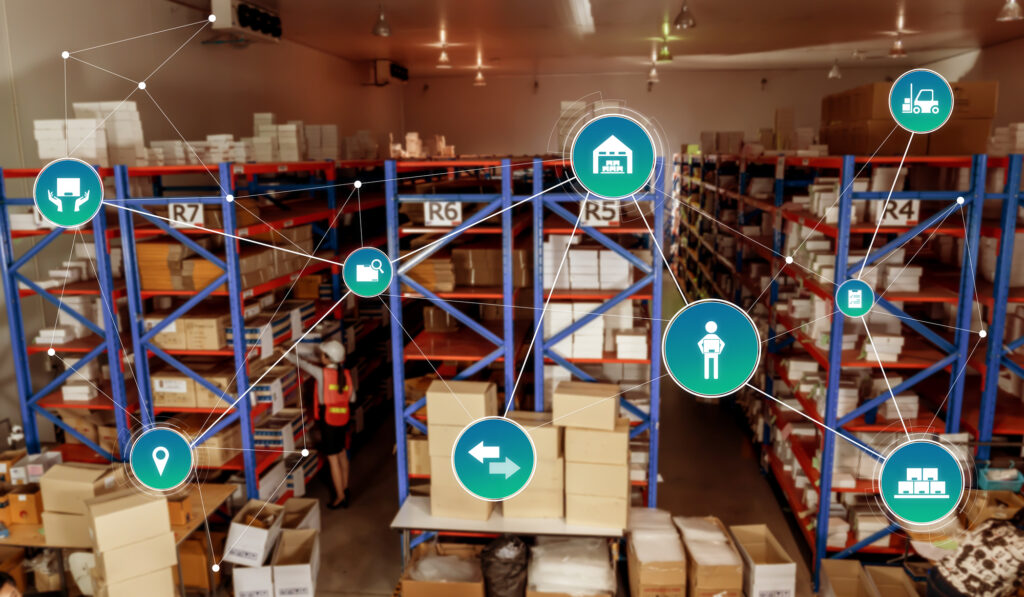
The EU's Digital Product Passport (DPP) is a significant initiative aimed at enhancing transparency and sustainability in product manufacturing and distribution within the European Union.
The DPP framework requires manufacturers and resellers to collect, manage, and share product-related data across a product's lifecycle.
The road to transparency
Through conscious activism, such as boycotting products that conflict with their values, along with the advent of new regulations and the expansive reach of the internet, consumers are becoming more educated and informed about the impacts of waste and the importance of sustainability.
This collective awareness has brought the concept of sustainability to the forefront at every stage of the supply chain, resonating with consumers and senior executives worldwide.
And the backdrop to this change in mindset is set against the world of e-commerce, with its explosive growth driven by the shift in consumer behaviour to buy more online which shows no signs of slowing down.
So, by combining the two mega-trends of sustainability and online shopping, together with an increased awareness of sustainability and the environment, end-consumers are now more than ever, challenging manufacturers over their commitment to corporate sustainability goals.
Our aim with this blog is to explain what DPP is, its role and how using an Master Data Management system can help the roll-out of DPP.
Why do we need the DPP?
The primary purpose of the DPP initiative is to provide consumers and businesses with comprehensive information about the sustainability and environmental impact of products, to help us when we buy a product to make appropriate sustainable choices.
By making this information easily accessible, visible, and traceable the EU aims to facilitate more informed purchasing decisions and encourage sustainable practices throughout the supply chain. Including making it easier to verify compliance with legal obligations.
As businesses share this key product related information, customers will understand more about a particular product’s sustainability and circularity.
There will always be a limit to the amount of resources available for consumption, so it is timely for a shift from the current linear model of consumption out stripping supply to move to a circular economy for a sustainable future.
And this is a shift that is reflected in the B2C (business-to-consumer) market, where the noticeable trend has been one of reducing consumption, with end-consumers buying noticeably less to reduce their consumption habits and environmental impact, along with the fact that the economic conditions today mean people actually have less disposable income.
Globally, by having access to the DPP data, it can be leveraged to help businesses make the transition to a circular economy. Data that can be applied to boosting efficiencies, learning how to extend a product's lifetime through optimised design, manufacturing, and end of life handling.
The European Commission (EC) is the first large regulator aiming for mandatory DPP implementation across a range of products and industries. The EC hopes to reach the final approval of the Eco-design for Sustainable Products Regulation (ESPR), that includes the DPP, in 2024.
Research shows (Digital Product Passport in the textile sector) that the current corporate practices could be encouraged to do more, and the use of DPP would enable more transparency and encourage more sustainable uses and circularity.
Read more: How can retailers make product data accessible on channels their customers use?

How does DPP apply to my business?
Sustainability and transparency are becoming ever more important when it comes to influencing the buying behaviour of consumers. So, businesses need to apply themselves to these new initiatives that enhance consumer trust and promote environmental responsibility.
The common thread between 2023 and 2024 has been that end-consumers are demanding a more responsible approach by manufacturers to reduce waste. Consumers are keen to see brand owners take responsibility and respond to their demands in an appropriate way rather than just tell them what they think they want to hear with “green washing”, i.e. spending more resources on advertising being "green" than on environmentally sound practices that have an impact.
The EU's DPP is one such initiative that aims to improve product sustainability by making manufacturers and resellers collect, manage, and publish detailed information about their products.
The main advantage of the DPP is that it goes beyond a simple label. Thanks to the information it contains, this tool has the power to overcome the lack of data associated with a product, an obstacle that has so far hampered the repair, recycling and reuse processes.
Thanks to the data contained in the DPP, it will be easier to repair products by identifying them and accessing specific maintenance or repair services to order spare parts.
In addition, the new functionality-related circular economy models can use the DPP to collect information during the use phase of the product, such as a history of maintenance, repairs, rentals and resales, right up to the end of the product's life.
To date, product traceability has generally been limited to the supply chain up to the point of sale to the consumer. The DPP opens up new horizons by recording events that occur after the initial sale of the product, opening up new sources of data collection, providing a better understanding of customer behaviour and usage. This information can also be used to improve existing products and create new services, extending the useful life of products.
Producers have a responsibility to anticipate what will happen to their products at the end of their life. This is the purpose of Extended Producer Responsibility (EPR) compliance reporting, to gain visibility to end-of-life costs which can then be applied during the product design stages.
This type of reporting can help identify circular economy opportunities and measure the impact of their adoption throughout the product lifecycle. This data can then be used to reduce the impact of having to recycle at end-of-life for a product by making better, more sustainable decisions at the product design stage. Decisions that could make it easier for products to be reused or recycled, and effectively reduce long term costs.
The DPP information could also be leveraged to communicate more effectively the recycling rate or actual product lifetime if the products can be scanned at the sorting centre.
The DPP provides a superior level of information that can appeal to demanding customers and create a better and more informed user experience. Brands know that sustainability is an attribute that customers value, and are therefore striving to promote product transparency, tapping into customer concerns.
With so much information to process and manage, it makes sense for businesses to deploy a robust Master Data Management (MDM) solution.

So, how can having an MDM solution help?
The first step towards DPP compliance is for a company to gather detailed product information and get it in order. So, companies will need a powerful data collection framework that enables them to capture and consolidate all relevant data points.
Managing product data across multiple systems and departments can be a complex and error-prone process. Using an MDMs centralised data management capabilities can bring together diverse data sources as a single source of truth, enabling businesses to have a holistic view of their product information, facilitating compliance with DPP requirements and identifying knowledge gaps that might slow down the path to compliance.
Read more: How to use Stibo STEP to unlock value in the CPG sector
Maintaining data quality and governance is crucial for DPP reporting to be accurate and up to date. An MDM system can offer a robust data management tool, defining clear processes for data collection and storage, facilitating data validation, cleansing, and the application of data standards.
An MDM solution can also publish product data to the appropriate channels, alerting suppliers about new transparency requirements and ensuring that the relevant product information reaches the intended audiences accurately and efficiently.
Read more: How B2B Distributors can successfully leverage MDM
Book a free consultation and let’s explore how we can help you leverage MDM to meet DPP requirements in your organisation.